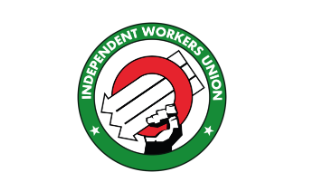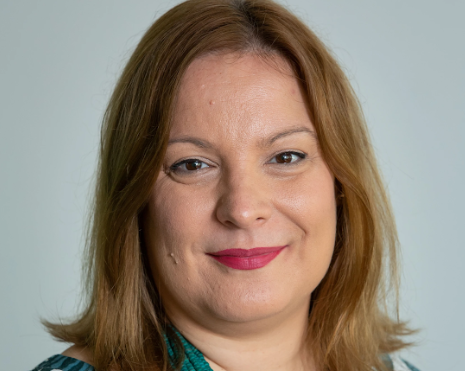Gemma Stacey, Deputy CEO of Florence Nightingale Foundation, explains how the charity built on its emerging sustainability strategy to develop a broader ESG statement and action plan.
____________________________________________________________________
Over recent years there has been a shift in the private sector from ‘Profit, Profit, Profit’ to ‘People, Planet, Profit’. For charities such as the Florence Nightingale Foundation (FNF), with our aim of supporting nurses and midwives to improve care and save lives, we can translate this into ‘People, Planet, Impact’. Whilst the main aim and operational activities of most charities would already fit into some or all of these boxes, it is still rare for organisations in our sector to set out specific commitments on these areas in our own conduct – often described as an Environmental, Social and Governance (ESG) statement.
Understandably, financial and other constraints mean that charities’ priorities usually remain firmly on the day-to-day operations and support to the communities we serve, but evolving external expectations and an increased understanding of the benefits mean that slowly this is changing. At FNF we launched our own ESG statement in May of this year, and are keen to share our experience and learn from others on a similar journey.
Our journey had begun by setting out our specific intentions around the environmental pillar: how to ensure we were not negatively impacting on the world, but that in fact we contribute to improving sustainability. This was given further momentum by the fact that the nursing and midwifery community overall, indeed the immense overall healthcare sector, was also increasingly focusing on the importance of sustainability and need for action. Given the sizeable carbon footprint of healthcare, it's crucial for organisations working within it to champion change.
In 2022, with support from an external consultant, we set up a Sustainability Action Team comprising key FNF team members and FNF alumni. This team led a review of our activities - including a stakeholder survey, and developed an initial strategy: ‘Pioneering a Greener Way’. We presented this to a group of key stakeholders at one of our high-profile leadership programme events, to very positive feedback. We then moved to take forward the commitments in the strategy, including measuring our baseline carbon footprint and developing a low carbon events policy.
The FNF 5-year strategy identifies creating a financial, social, cultural and environmentally sustainable future as a key strategic priority. We therefore soon identified that there was an opportunity to expand this environmental strategy, and to situate this work into a broader ESG statement. As an organisation we were already focusing on some of these broader areas but wanted to bring these streams altogether in one place: to raise awareness with all our stakeholders as to the importance; to push ourselves to go further; and to better hold ourselves accountable.
As an organisation which is expanding to influence global health and well-being, FNF is committed to demonstrating impact which contributes to a number of WHO Sustainable Development Goals (SDGs). Taking these SDGs as a basis, as well as learning from other organisations, including insights from consulting firm RSM, we drew up our own ESG framework and statement, including a detailed action plan. This looks not only at our impact on the environment but also on the proactive management of social impacts of our organisations both in communities and on employees (addressing inequalities is a key focus for us); and the transparency and evidence of effective governance which underpins our charity.
We had to focus on what we can actually do to have an impact in these areas, within our sphere of influence AND within our existing charitable objectives. We recognise that our greatest influence on sustainability is achieved through the growth and development of our nursing and midwifery membership and alumni community.
Bearing this ‘sphere of influence’ in mind we adapted the RSM’s ‘wheel of responsibility’ – rebranded, with their permission, in FNF colours, and then an FNF ‘Sphere of Influence’ diagram. A key part of our leadership development work is encouraging our communities to think outside the box and so we are well placed to encourage groups to think differently in regard to ESG activities.
We also seek to influence our sector more broadly and our suppliers. By setting high-standards, and insisting on evidence of our partners’ commitment to the same, we can role model best practices that foster positive social and environmental impact.
Throughout the process we sought advice from external partners, with expertise and experience in particular areas. For example, our ‘Anti-racism statement and commitments’ was developed with guidance from an external panel of Global Majority nurses and midwives. We are committed to embedding these principles in the culture of FNF itself. Our internal Equity Assessment and Impact group are helping us to take this forward by providing reviews of all FNF policies and advising how we can ensure our ways of working are not only inclusive but also actively anti-racist.
Alongside the statement we shared our achievements so far – and an action plan in table form. We have planned a monthly blog series, starting this autumn, to feedback stories of how different members of our team are working towards some of the planned actions. One of the first of these will be hearing from our employee reference group: a new group set up to ensure our events, policies, and overall work, are accessible to all and do not perpetuate inequality in any way.
It’s an ongoing learning process and what is key is that it’s not about changing the aim of our charity (for us this is supporting nurses and midwives to improve care and save lives) – but about changing how we achieve that aim. Equipping the FNF community with the capabilities to respond to a rapidly changing and complex health and care landscape, by increasing their core confidence to lead, is central to our purpose and at the heart of our ESG statement. If we are to achieve this, we must role model our commitment to the principles of ESG in the way we operate as a charity.
Latest News
-
Views sought on how to improve charity boards
-
Building Society increases charities funding by £1m
-
Last chance to enter the Better Society Awards
-
Bob Collins: Why rising UK taxes may lead to a rise in charitable giving
-
Proportion of global majority environmental charity workers falls
-
Probe launches into ‘persistently’ late filing financial services charities
Charity Times video Q&A: In conversation with Hilda Hayo, CEO of Dementia UK
Charity Times editor, Lauren Weymouth, is joined by Dementia UK CEO, Hilda Hayo to discuss why the charity receives such high workplace satisfaction results, what a positive working culture looks like and the importance of lived experience among staff. The pair talk about challenges facing the charity, the impact felt by the pandemic and how it's striving to overcome obstacles and continue to be a highly impactful organisation for anybody affected by dementia.
Charity Times Awards 2023
Mitigating risk and reducing claims

The cost-of-living crisis is impacting charities in a number of ways, including the risks they take. Endsleigh Insurance’s* senior risk management consultant Scott Crichton joins Charity Times to discuss the ramifications of prioritising certain types of risk over others, the financial implications risk can have if not managed properly, and tips for charities to help manage those risks.
* Coming soon… Howden, the new name for Endsleigh.
* Coming soon… Howden, the new name for Endsleigh.
Better Society

© 2021 Perspective Publishing Privacy & Cookies








Recent Stories